Our Mission & Expertise
A Call for Humanity: Protecting Lives in Conflict Zones
In the Spotlight

INSEAD Knowledge: Humanitarian Research Series

Doing well by doing good research

What firms can learn from NGOs in Africa

Prof. Van Wassenhove receives honorary doctor degree and achieves the five-fecta
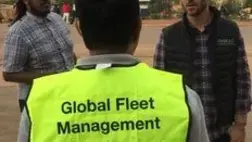
Fleet management in the land of a thousand hills
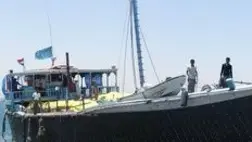
Humanitarian agility in action

HRG contributes to symposium on Supply Chain Design

Encouraging Business Scholars to Address Societal Impact
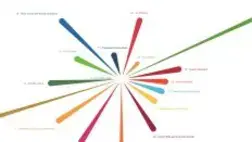
How the SDGs Can Change Your Organisation, From the Inside Out

Flattering curves: Leveraging the shapes of a pandemic

The Early Bird Catches the Worm: Why Routine Diagnostic Testing is Vital for Pandemic Preparedness

Prashant Yadav on Vaccine Distribution for COVID-19
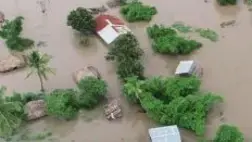
A series of vignettes on humanitarian operations by the INSEAD Humanitarian Research Group
Five Year Objective
Linking INSEAD’s deep knowledge with 20 years of collaboration with humanitarian organisations, we aspire to strengthen our world-leading research position in optimising operations underpinning the attainment of the UN Sustainable Development Goals. Our main focus is on the following SDGs
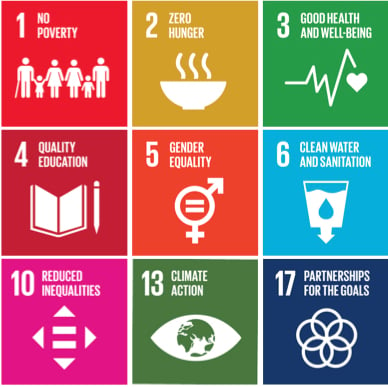
Five Key Areas
Imagine the logistics of planning the Olympics. Now imagine planning the same event but not knowing when or where it will take place, the number of spectators who will attend or how many athletes will compete. This is exactly what disaster logistics looks like: trying to meet vast needs with huge uncertainty and under difficult circumstances. The next disaster could strike at any moment and humanitarian organisations need to be ready.
It is utopian to think that organisations can be prepared for everything and that response will be perfect. Yet, preparedness and response can be learned and scientific research can contribute to that.
At HRG, we analyse major challenges in preparedness and response and how they could be tackled. For example, how to build a network of warehouses storing essential disaster relief items or relief assets like 4x4 vehicles? And how to best determine inventory levels for essential medicines? Overstocking may result in substantial waste, but under-stocking may have significant impacts on people in need, making the issue hugely complex.
Building organisational capabilities presents another major challenge which HRG studies. The right capabilities (e.g. skills, knowledge and organisational structures) can mean the difference between a successful response and complete failure. Understanding key capabilities, and developing and exploiting them is vital. HRG has analysed the secrets behind UNICEF’s exemplary and swift response to the challenges generated by the Yemen crisis. Organisational capabilities are strongly linked to the concept of strategic agility and its three pillars: collective commitment, resource flexibility, and strategic sensitivity. Our insights are of practical value to the humanitarian sphere, but also to the commercial sector, which is also increasingly operating in a volatile, uncertain, complex, and ambiguous (VUCA) world.
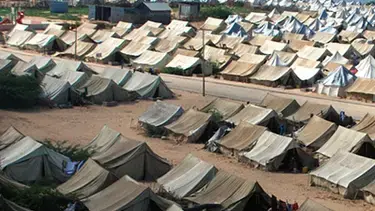
Goal 3 of the United Nations Sustainable Development Goals (SDGs) is to “Ensure healthy lives and promote well-being for all at all ages”. While much progress has been made in this area – global life expectancy has doubled over the past century, for example – substantial health challenges persist. In particular, much efforts is needed to provide universal health coverage, as targeted by SDG 3.8: “All people and communities receive the quality health services they need, without financial hardship”. The World Health Organization estimates that today nearly 2 billion people have no access to basic medicine and at least half the world’s population lacks access to essential health services.
The field of operations and supply chain management plays a key role in addressing these challenges. The causes of low drug availability are often not medicine prices and patents, nor a lack of access to clinics or pharmacies. The reality is that medicines are often available in sufficient quantities on a national level but don’t reach the right place at the right time. Insufficient supply chain management is often at the core of the problem. Similarly, access to health services is often constrained by scarcity of resources: health workers, money, infrastructure and so on. Instead of simply waiting for more resources to become available, one can optimise the use of available resources. This is exactly what operations management is about.
Our group has been one of the first to recognise this and put it top of the agenda. For example, we analyse root causes of drug stock shortages in clinics and pharmacies. Is it due to a lack of skills and knowledge? Do pharmacists have adequate incentives? How reliable are suppliers? We have also analysed how commercial organisations like Coca Cola manage to get their products in the most remote areas, whereas essential medicines are often lacking in those locations. What can health supply chains learn from the commercial sector? Other projects consider distinct challenges such as epidemic control, network design for healthcare providers, matching medicine donations with needs, active case finding (screening), family planning outreach optimisation, disease trend modelling and building effective partnerships between NGOs, health authorities and the commercial sector.
Though we primarily focus on access and equity challenges in the health sector, we have also worked with other areas, such as food, education, water, sanitation and hygiene.
Example: Family planning
Contraception is out of reach for 225 million women worldwide, which has immense consequences. Each year millions fall pregnant unintentionally and millions use very risky abortion methods. Multiple pregnancies in quick succession or getting pregnant at an early age can substantially reduce a woman’s chances for building a career and becoming financially independent.
Though by far, the most important objective of family planning is to support having children by choice, not by chance, it also serves broader objectives. Birth control is regarded as a key priority for increasing development and avoiding problems related to population growth. Improving access to family planning therefore plays a key role in the UN Sustainable Development Goals.
HRG engages in several research projects on family planning, for example with NGO Marie Stopes International (MSI). We analyse how scarce resources can be utilised to maximize the scale and impact of family planning. Of particular attention is the (re)allocation and deployment of MSI’s 500 mobile outreach teams. The group also analyses the long-term development of family planning uptake and implications for resource allocation. In a separate project, HRG has analysed supply chains of family planning products, specifically in Francophone Africa.
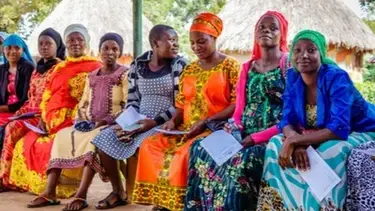
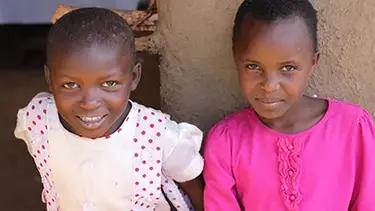
SDG 17, partnership for the goals, is not a standalone objective but rather a means to reach the other 16 goals. Partnerships are crucial. They are in a much better position to provide solutions than organisations or sectors acting individually. However, much is yet to be learned about how to unlock this massive potential.
HRG has studied public-private partnerships over the last 20 years. Examples include the TNT/ WFP "Moving the World" partnership, North Star Alliance, Agility, Tulipe, and Medicines for Malaria Venture. We study how such partnerships evolve, from planning to implementation and, sometimes, to separation. We also analyse performance of such partnerships. What makes a partnership successful? When is a partnership mutually beneficial? When can a problem only be solved by combining skills and competences from different partners? Our analyses yield transferrable best practices and provide solutions to key challenges partnerships cope with.
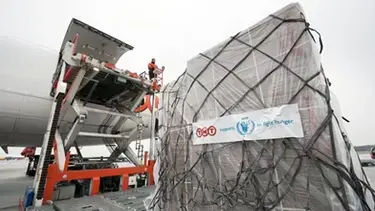
Did you know that transportation is the largest cost component of a humanitarian mission? Organisations use and/or own large numbers of expensive assets: planes, ships, trucks, 4x4 vehicles, etc. Despite the immense costs associated with procuring, maintaining and deploying them, large inefficiencies exist. As every dollar saved on assets is one that can be spent on beneficiaries, reducing these inefficiencies has the potential to save many lives and decrease suffering. Improving efficiency is, however, not trivial. Many challenges exist, including time pressure, demand uncertainty, difficult operating conditions, context-specific asset requirements, lack of access to maintenance services and spare parts, and lack of collaboration.
Since 2007, the INSEAD Humanitarian Research Group has engaged in many research projects on how international humanitarian organisations manage their assets and evaluate their major sources of inefficiency. We develop and analyse novel asset management systems. For example, we follow the implementation of UNHCR’s vehicle leasing program. The group also studies ways to efficiently stockpile reserve vehicles, e.g. by setting up temporary vehicle hubs after a disaster.
Improving the deployment of assets is another major research topic. Assets should be moving; a golden rule that led to much innovation in the private sector. Much is yet to be gained in the humanitarian sector: levels of asset sharing within and between organisations are often dramatically low. Room for improvement also exists for asset use and route planning.
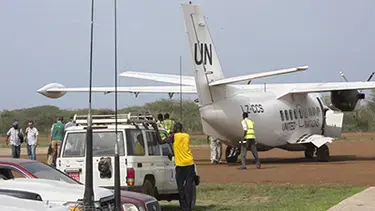
Commercial organisations produce huge quantities of waste in the form of excess stock of food, medicines, etc., while many people lack access to such items. An obvious solution is to donate surplusses to the people or organizations who lack access to them. Though this idea is commendable, execution is challenging. Donations are highly volatile, causing instability in supply. They can also flood local markets, end up in the wrong hands and be handled inadequately.
HRG studies organisations that play an interface role between donors and beneficiaries for items like food (food banks), medicines, electronics and clothes. Managing these platforms is extremely complex, as uncertainty comes from all directions: supply, demand and capacity (volunteers). We analyse these challenges and how they can be dealt with from an operations and business model perspective.
Climate action (SDG 13) is another topic within the Environment & Waste area. Concerns about environmental impacts of humanitarian operations are rising and organizations are increasingly analysing and reporting such impacts (see, e.g., the Greening the Blue initiative). HRG analyses how organisations deal with concretising high-level sustainability objectives and how they make trade-offs between conflicting objectives.
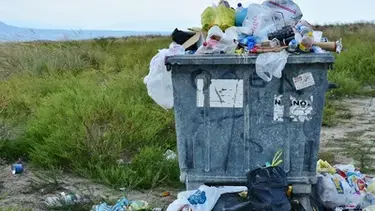
Who We Work With
Humanitarian and private sector





















Academic institutes
















